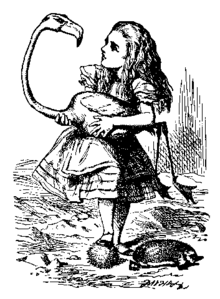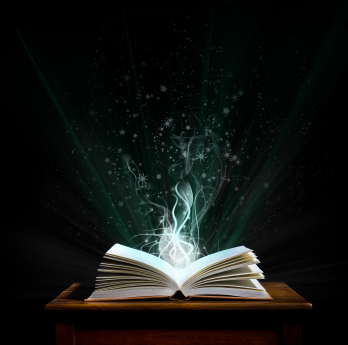
Here's what I've been thinking about lately: a writer friend of mine is revising a novel. It addresses a difficult and painful subject - sexual violence - and tries to reach some kind of happy outcome for the characters. This friend is having difficulty, due to the temptation to bring too much reality into the book. Too many details, too many subplots, too many extraneous motivations, too much emotion that distract from the horror of the subject. Yet, the author says, all of the extras are real.
Fair enough. I don't envy the author; this is a truly challenging topic, and frankly I stay away from "real" problems as much as possible in my writing. (There's a reason I write speculative fiction, after all.) But my friend has chosen to wrestle with the subject, so I'm here to support the effort as much as I can.
And in so doing, I've been trying to articulate what exactly the role of "reality" is in fiction. My friend's novel would probably come under the genre heading of Women's Fiction. The Romance Writers of American define women's fiction as "a commercial novel about a woman on the brink of life change and personal growth. Her journey details emotional reflection and action that transforms her and her relationships with others and includes a hopeful/upbeat ending with regard to her romantic relationship." OK, then. So how does reality figure into the plot, the setting, the dialogue, and the character development?
That question led me to a more fundamental one: how does reality figure into any novel? And in pondering, I've deduced the following answer: it doesn't. Somewhere on my bookshelf of "respectable" literature is a little tome left over from my expensive undergraduate education, called Resisting Novels: Ideology and Fiction by Lennard J. Davis. There's more to it, but the gist is that novels are in essence, lies. They are a structure of ideology, carefully crafted to subvert the reader's hold on his own reality and ensnare him in another world order.

To make his story work, the novelist must use every tool in his power to convince us that the world of lies he's creating is real. We need to accept without question that there are aliens waiting to chomp us down with cocktail sauce, or that absolutely, the dark lord has singled out the protagonist for destruction for no obvious logical reason, or that of course the gorgeous megastar actor is going to fall madly in love with the camera operator. Or, in the case of my friend's novel, that the heroine will conquer the demons of abuse and recover into a healthy relationship with the hero.
So, how does the novelist do it? By taking reality and distilling it to its most fundamental, primal essences. It's the zen of literature.
Here's what I mean: think about the last time you spoke to someone on the telephone. You probably remember the general outline of the conversation; maybe it was to touch base with your mother, or to order something, or to complain about service, or to set an appointment. But I guarantee you don't remember it word for word, unless it was a very short conversation. The same is true with face-to-face dialogue. We tend to be inarticulate in casual conversation. A transcription of your run of the mill conversation would be rather long, full of extraneous detail, or else loaded with verbal shorthand. In other words, wretched reading (pity the poor courtroom recorder).
But a good dialogue in a novel… well, that's some fun reading. It imparts information just when it's needed - no longwinded backstory - creates tension, and conveys powerful emotion. And in comparison to the real thing - it's all consciously created lies. It's essence. It's distillation.
If we ever pause in reading a novel and think, wait, that couldn't really happen, then the novelist has failed to distill the true-ness out of whatever plot element, setting, dialogue, or character he's created. Think about that paradox: the novelist needs to find pure truth in order to create lies. Wow. And some people think our job is "just writing!"
A novel is a fragile, crystalline structure of the ideas, actions, activities, motivations, and characteristics that define the human experience. It's delicate, and breakable, but when it holds together it looks impervious to resistance or defeat. To my friend, and all the other novelists out there, I say, find what's true in your story, and leave out the extras. Build a world out of just a few strands of truth, and ignore the fact that the buildings are just facades, or that people tend to babble, or that they're irrational. Simplify, especially in the most complex and challenging of novels, and make your lies so compelling that your reader will willingly surrender to them.
Happy writing! Peace.

 RSS Feed
RSS Feed